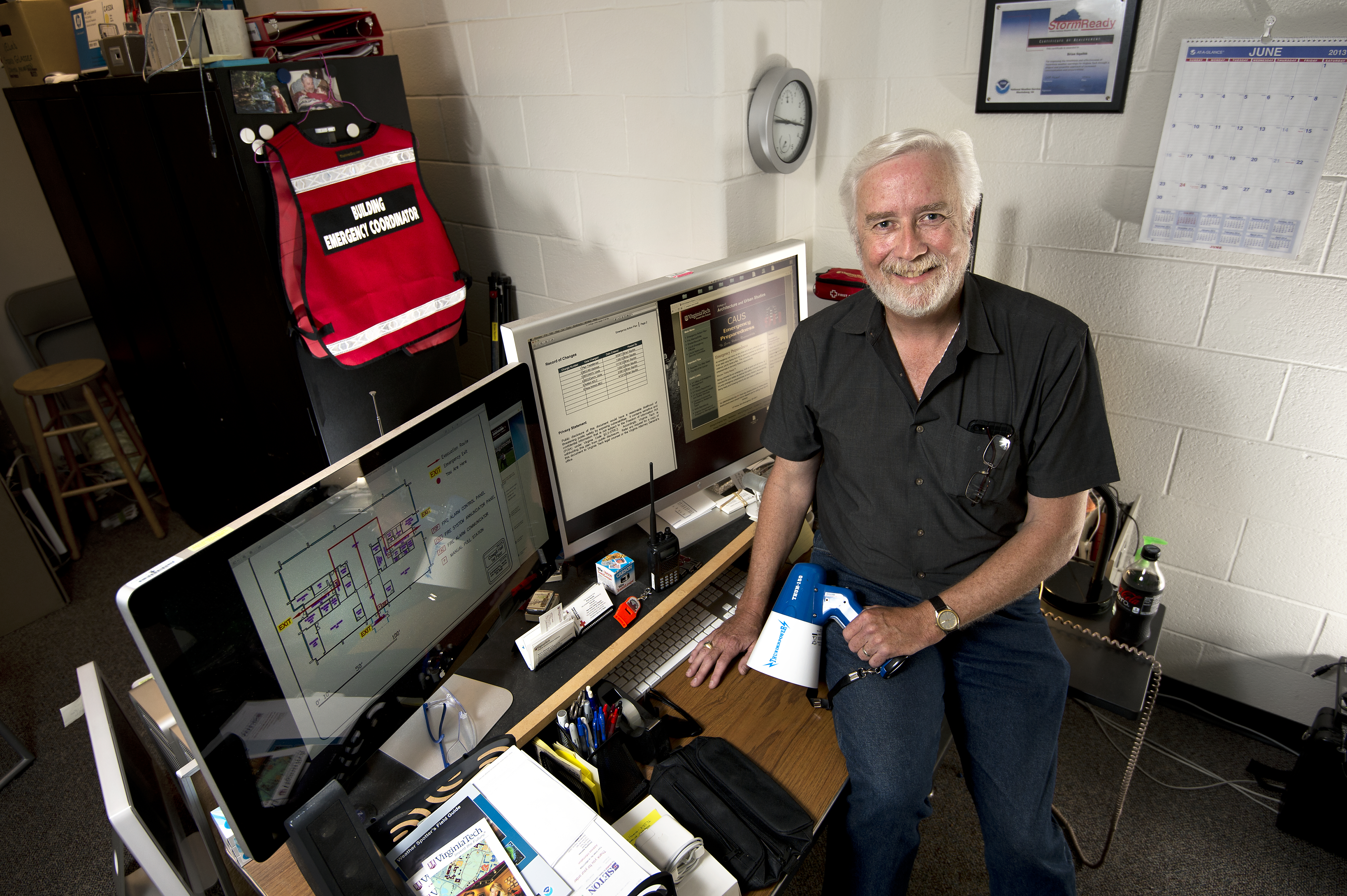Training for university emergency coordinators improves campus safety

Crime prevention, a new safety smartphone app, and lessons from the Boston Marathon bombing are on the agenda for Virginia Tech’s building emergency coordinators training scheduled for Wednesday.
The annual training will bring together approximately 125 people to learn ways to improve safety on campus. The highlight of the training will include a presentation from John Tommaney, director of emergency management at Boston College, on lessons from the Boston Marathon bombing.
Virginia Tech has more than 250 building emergency coordinators and 180 alternates. Their job is to work with all departments within their building to ensure a unified emergency preparedness effort. In addition, the coordinators serve as liaisons to the Office of Emergency Management and first responders during a building evacuation or other emergency. The alternates assist in those efforts.
“Most of our buildings have more than one department sharing the space. The building emergency coordinators make sure the departments work together to develop consistent emergency plans,” said Michael J. Mulhare, director of emergency management. “This training will refresh their knowledge and provide them with new ideas about safety and emergency preparedness in their buildings.”
Coordinators are volunteers and take on the extra duty in addition to their regular jobs. Most work in the building they represent and know the sort of activities that take place. They are familiar with the types of research, chemicals, and equipment that are in the building.
“Every building at Virginia Tech is unique. They are different structurally and by the number and types of occupants,” said Chuck Perkins, facilities manager for the Provost’s Office and a building emergency coordinator for three buildings. “Having a single point of contact that is familiar with the building and occupants is not only useful for daily activities, it is crucial during an emergency.”
In addition, most buildings have an emergency preparedness committee, which is comprised of representatives from departments within the building. The committee selects the building emergency coordinator and the alternate coordinator. Together, they work to develop and maintain the building’s emergency action plan and coordinate fire drills and emergency exercises.
Visit the Office of Emergency Management website to learn more about the Building Emergency Coordinator program and other campus preparedness efforts. Faculty or staff interested in supporting the program should contact Chris Rossi at 540-231-5394.
Dedicated to its motto, Ut Prosim (That I May Serve), Virginia Tech takes a hands-on, engaging approach to education, preparing scholars to be leaders in their fields and communities. As the commonwealth’s most comprehensive university and its leading research institution, Virginia Tech offers 240 undergraduate and graduate degree programs to more than 31,000 students and manages a research portfolio of $513 million. The university fulfills its land-grant mission of transforming knowledge to practice through technological leadership and by fueling economic growth and job creation locally, regionally, and across Virginia.




